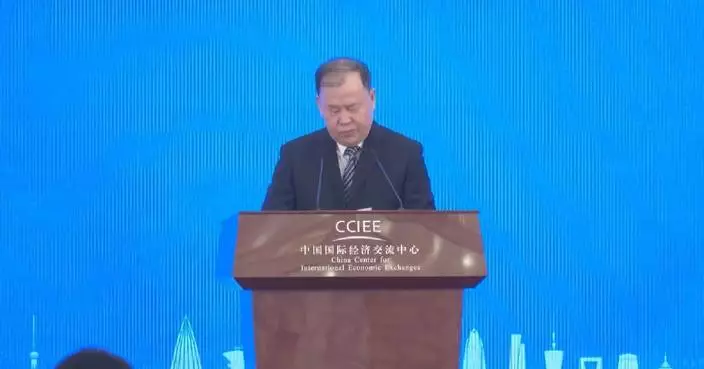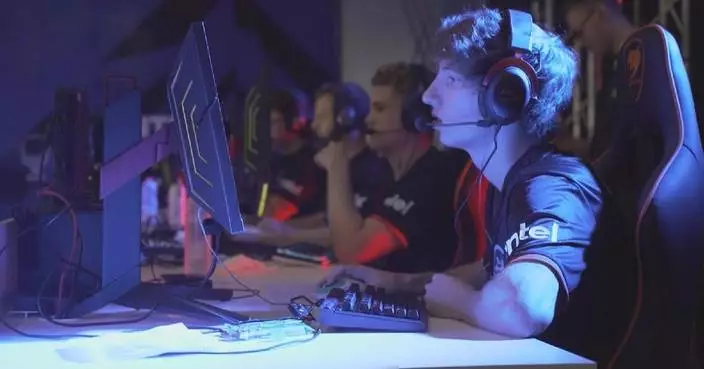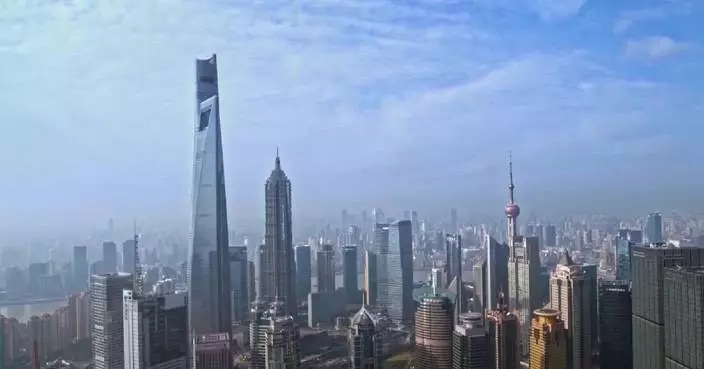Giant Panda Fu Bao is seen enjoying her fresh bamboo meal while taking a sun bath recently at a breeding base in southwest China's Sichuan Province.
The footage shows a series of lighthearted scenes with the fluffy "celebrity" basking in the dappled sunlight, taking elegant strolls and delicately chewing the selected bamboo at Wolong Shenshuping Base of China Conservation and Research Center for Giant Pandas (CCRCGP).
Fu Bao, born on July 20 of 2020, is the daughter of Le Bao and Ai Bao - a giant panda pair that arrived in South Korea in March 2016 on a 15-year lease, and the first ever panda cub born in South Korea.
Donned the "top celebrity in South Korea," the giant panda returned to China on April 3 this year. Her departure drew fans to wait for hours outside Everland, South Korea's largest theme park, to bid farewell.
Fu Bao officially met with the public in China on June 12 for the first time after coming back from her birthplace.
The CCRCGP is a world-leading institution dedicated to breeding and conserving one of China's national treasures, the giant panda. The center has also established a global platform for promoting international cooperation and exchanges involving 18 zoos from 16 countries and regions, 39 domestic animal breeding institutions, and over 10 scientific research institutes.
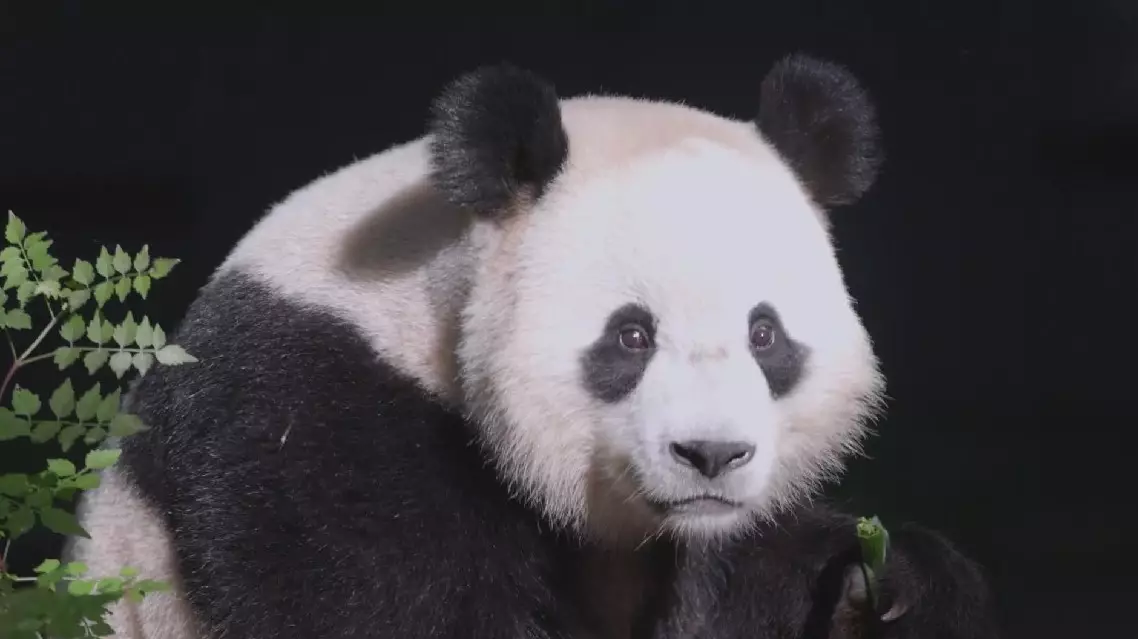
Cheerful giant panda Fu Bao takes sunbathe, feasts on fresh bamboo meal
EU is employing double standards in its electric vehicle (EV) policies, unfairly targeting Chinese EV imports with tariffs and subsidies, according to experts at the 17th Forum on WTO Laws and China opened in Guangzhou City of south China's Guangdong Province on Saturday.
One of the highlights was the release of a blue book titled "The EU's Industrial Subsidy Policy for Lithium Batteries, PV Products and Electric Vehicles in the Name of Green Transition", which claims that while continuing to impose anti-subsidy tariffs on imported Chinese electric cars, the EU is subsidizing domestic EVs, lithium batteries and photovoltaic products.
Shi Xiaoli, the book's lead researcher, claimed that while the EU restricts state aid that might cause market distortions, numerous exemptions still exist, which ultimately allows subsidies across these three sectors.
"For example, one of the exemptions is that even if a subsidy in a certain country distorts the EU market, even significantly, if it still aligns with the EU's long-term common interests, it can remain. The scope of European common interest projects is continuously expanding, and it includes these three industries," said Shi Xiaoli, Director, WTO Law Research Center.
The book reveals that EU member states heavily subsidize electric vehicles, with substantial support covering the entire industrial chain.
At the same time, the EU has recently introduced new tariffs of up to 35 percent on imported Chinese EVs. That's in addition to the existing 10 percent duty, which some experts deemed as counterproductive.
"We believe this policy is discriminatory. The EU acknowledges that Chinese electric vehicles have caused no harm to its EV sector. The EU's trade protectionist measures are in fact more detrimental to itself. While it may protect its market in the short term, once these measures are lifted, its technology and other aspects may fall even further behind," said Sun Xiaohong, secretary-general of the China Chamber of Commerce for Import and Export of Machinery and Electronic Products (CCCME).
A lawyer at the event argued that the EU's actions are not typical trade measures, but an attempt to curb China's EV sector growth.
"Subsidies for emerging industries exist in every country, including the United States and the European Union. Also, this time the European Commission initiated the case on its own authority, marking the first use of a special legal rule in the anti-subsidy investigation against Chinese export enterprises," said Pu Lingchen, Partner, Chance Bridge Law Firm.
The EU has given itself quite the ambitious goal - starting in 2035 all new cars sold will be emissions free.
Those involved in crafting of the blue book believed that EVs will be crucial in achieving this target. But they have also said that if Chinese imported EVs come with a higher price tag, then the EU's ambitious plan will certainly face difficulties.
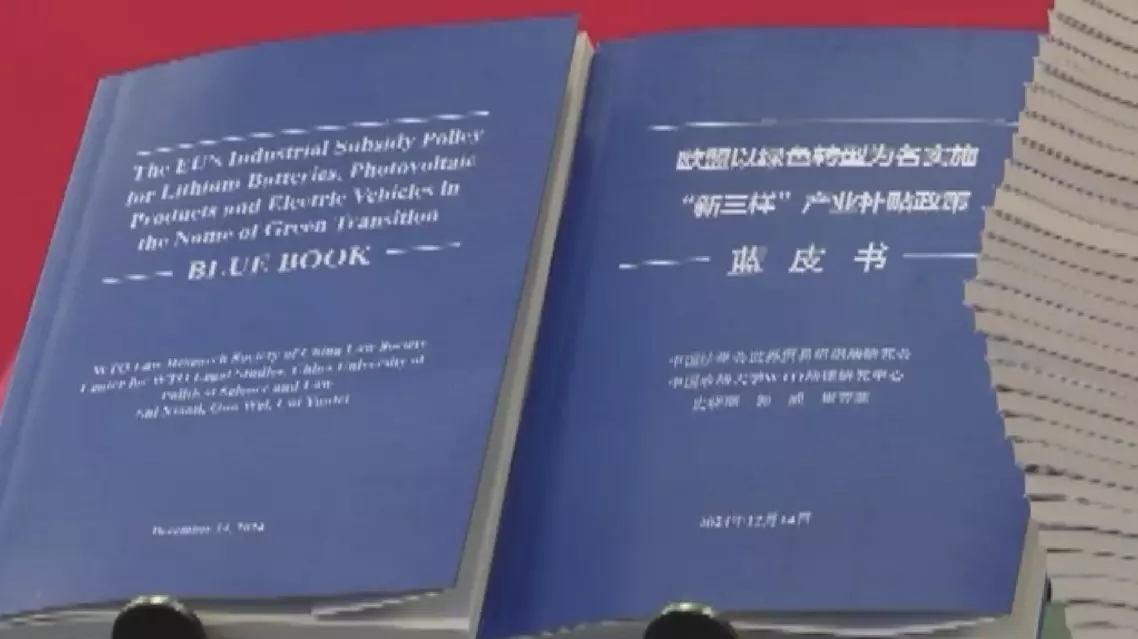
Chinese think tank criticizes EU's double standards on electric vehicles




